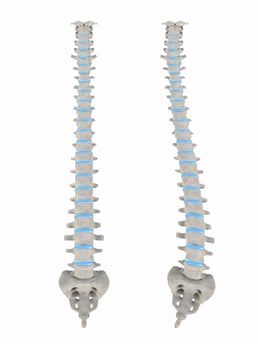Body Inflammation with Spinal Cord Injury
Join Our Movement
What started as an idea has become a national movement. With your support, we can influence policy and inspire lasting change.
Become an Advocate
Physical symptoms of chronic inflammation can be difficult to pinpoint as they are rather vague and symptoms of other issues. Individuals with chronic inflammation have some or all these symptoms:
- Feelings of aches and pains
- Fatigue-more than just being tired for a day.
- Obesity or weight gain
- Red or itchy skin
- Autoimmune disease
- Allergies or infection(s)
- Depression or anxiety
- Gastrointestinal issues-diarrhea, constipation, acid reflux
If you are concerned about chronic inflammation, talk with your healthcare provider. A blood test is a good start to assessment. Elevated biomarkers in the blood will determine your level of inflammation. Some inflammation does not require treatment. Get treatment for the specific disease or diseases that are the source of your chronic inflammation or if you have an acute infection.
Follow a Mediterranean style diet which includes fresh foods and healthy oils. Changing your diet will not eliminate inflammation but it may help or decrease progression. Foods that are thought to improve inflammation include olive oil, high fiber, nuts especially almonds and walnuts, leafy green vegetables, tomatoes, fatty fish and fruit. Foods to avoid are foods heavy with sugar, fried foods, saturated and trans fats, processed foods, and red meat.
Practice good sleep hygiene. Set a regular time for going to sleep and waking. Maintain consistency in this regardless of the day of the week or your activity. Turn off your electronics at least two hours prior to going to bed for sleep. Do not turn on electronics in the night. Avoid alcohol and caffeine as they disrupt sleep. Do not take sleep medication unless there is a specified medical need and it is prescribed by a healthcare provider. If you do take sleep medication, discuss with your healthcare provider how you might reduce it. A hard stop of sleep medication will affect future sleep ability. Check your sleep surface and mattress to ensure it is supporting your body correctly.
Other lifestyle changes that are thought to help chronic inflammation is to stop smoking, reduce weight, exercise and reduce your stress. These are all processes that take time and effort. It will take a while to achieve your goals in these areas but do not give up. You can accomplish your goals with time and effort. Nurse Linda
Pediatric Consideration:
Children tend to collect many acute infections especially as they attend school. As with adults, it is important to have these treated early especially when a spinal cord injury is present. Long term chronic inflammation is under study. As more information is discovered, more treatments will become available. Be sure to discuss with your child’s healthcare professional when to test for chronic inflammation. Follow the recommended diet for long term health. Be sure the diet is meeting the needs of your child. A dietitian is an excellent resource for assessing the dietary needs of children.
